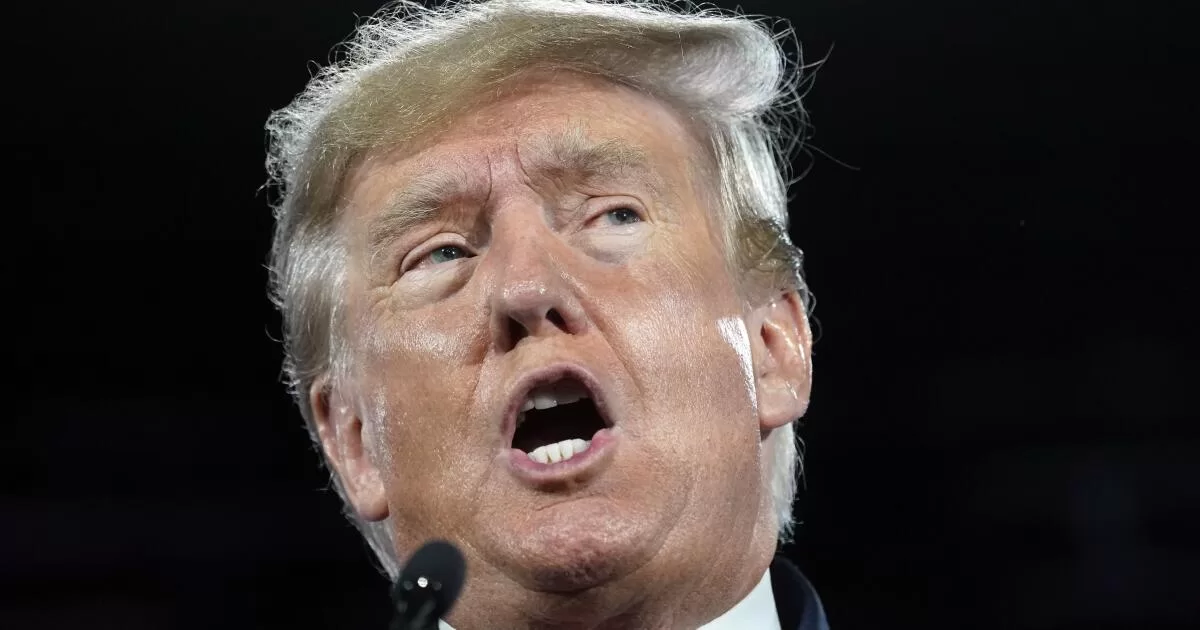Even if the justices ultimately rule against Trump, their decision to intervene now will delay his trial for several months, casting doubt on whether the criminal case could go to a jury before fall as the election campaign accelerates.
The justices said it will hear arguments on April 22.
They said they will decide the following question: whether — and if so, to what extent — a former president enjoys immunity from criminal prosecution for conduct alleged to involve official acts during his tenure in office.
The justices said nothing more.
It remains unclear whether some of the justices believe Trump has a strong claim for immunity for his purported official acts as president, or instead if they are simply following the court’s normal rules for resolving a major constitutional question.
Trump’s claim of absolute immunity for his actions as president has been derided by many legal experts.
In one court hearing, Trump’s attorney asserted that the former president could be shielded from prosecution even if he had told a Navy SEAL team to kill one of his political rivals.
Special counsel Jack Smith said Trump is charged with crimes that “strike at the heart of our democracy. A president’s alleged criminal scheme to overturn an election and thwart the peaceful transfer of power to his successor should be the last place to recognize a novel form of absolute immunity from federal criminal law.”
Trump was indicted by a grand jury in Washington on four felony counts that grew out of his efforts — some public and some behind closed doors — to prevent Joe Biden from being certified as the winner of the 2020 election.
Seeking to block a trial, Trump’s lawyers argued that a former president is shielded from criminal charges for his “official acts” while in office.
U.S. District Judge Tanya Chutkan disagreed and said the Constitution provides no absolute immunity for former presidents. The U.S. Court of Appeals for the D.C. Circuit affirmed her judgment in a 3-0 ruling.
On Feb. 12, Trump’s lawyers filed an emergency appeal urging the justices to keep the case on hold while their appeals could be considered. They said that Trump’s “claim that presidents have absolute immunity from criminal prosecution for their official acts presents a novel, complex, and momentous question that warrants careful consideration on appeal. … If the prosecution of a president is upheld, such prosecutions will recur and become increasingly common, ushering in destructive cycles of recrimination.”
They noted that one of the high court’s rules calls for granting review in a case when an appeals court “has decided an important question of federal law that has been not been, but should be, settled by this [Supreme] Court.”
In December, the special counsel had cited that rule in urging the justices to hear Trump’s case immediately. It is “of imperative public importance that [his] claims of immunity be resolved by” the high court, Smith said at the time.
But the justices turned down his appeal for a fast-track ruling and sent the case to the U.S. Court of Appeals, which then ruled against Trump.
This month, the special counsel partly reversed course and said the justices should refuse to rule on Trump’s appeal, clearing the way for the Jan. 6 trial to begin this spring. Granting review now “threatens to frustrate the public interest in a speedy and fair verdict,” he said.
As a fallback, he said the justices should hear the case in March and decide it on a fast-track schedule.
The special counsel made no mention of the election campaign or Trump’s status as the favorite to win the Republican presidential nomination.
But if the trial is delayed until late summer, the special counsel may run up against the Justice Department’s policy of avoiding prosecutions that could affect an election.
Two years ago, Atty. Gen. Merrick Garland issued a memo declaring that “partisan politics must play no role in the decisions of … prosecutors regarding any investigations or criminal charges. … Prosecutors may never select the timing of public statements … or any other action in any matter or case for the purpose of affecting any election. Such a purpose, or the appearance of such a purpose, is inconsistent with the [Justice] Department’s mission.”
Harvard Law professor Jack Goldsmith, writing in the Lawfare blog, criticized that he called the special counsel’s “rush to trial” and said Smith may run up against the Justice Department’s policy of avoiding election interference.
“Opinion polls show that Trump will be damaged, and Joe Biden will benefit, if Biden’s Justice Department convicts Trump of a crime before the election,” said Goldsmith, a senior fellow at the conservative Hoover Institution.
Attorneys for Alabama and 21 other Republican-led states urged the court to go slow when considering Trump’s appeals. They said their “states represent millions of Americans, many of whom worry that the timing of this prosecution was calculated to silence or to imprison President Biden’s political rival.”
They said the court should not “greenlight the prosecution to proceed at breakneck speed and to put the apparent front-runner” for the Republican presidential nomination “on trial in the lead up to the election.”
But a group of former Republican officials, including former Sen. John Danforth of Missouri, said that upholding immunity for Trump could increase the prospect of a future military coup.
“The last thing that would serve the nation or the presidency would be to embolden presidents who lose reelection to engage in federal criminal statutory violations … to prevent the vesting of executive power” in their lawful successor, the former officials wrote in a friend-of-the-court brief.
“If that qualified for absolute immunity, the precedent would encourage a future president to violate federal criminal statutes by deploying the military and armed federal agents in efforts to alter the results of a presidential election.”
